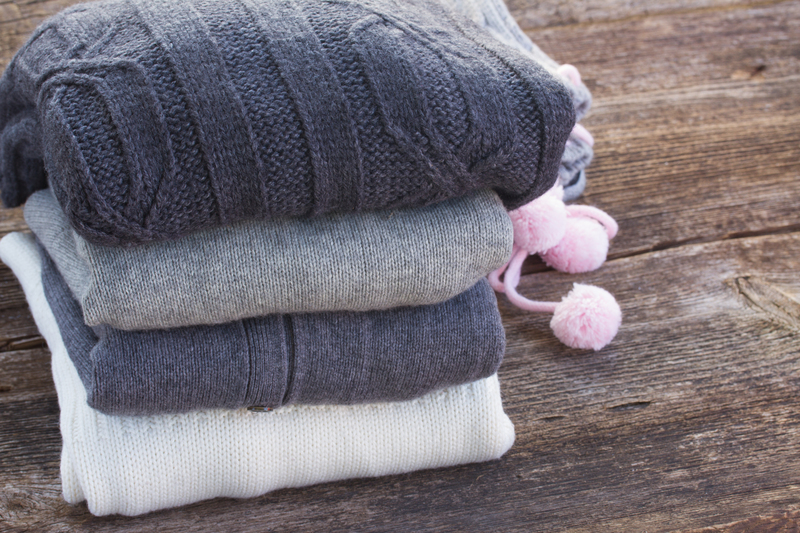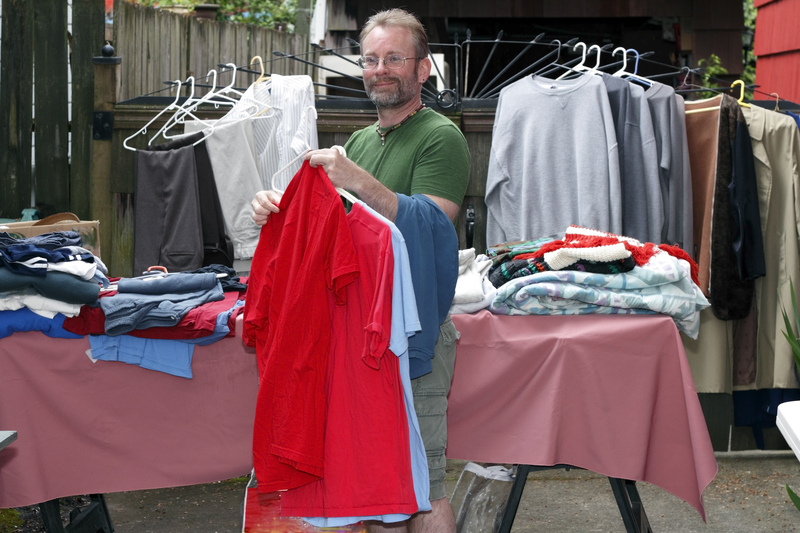Green Ways to Get Rid of Your Kitchen Pots and Pans
Looking for eco-friendly methods to dispose of your old cookware? Discover green ways to get rid of your kitchen pots and pans with this comprehensive guide. If your mismatched saucepans and scratched-up frying pans have reached the end of their life, don't just toss them in the trash--there are plenty of sustainable solutions to ensure they avoid landfills and get a new lease on life. Learn everything you need to know about sustainable kitchenware disposal below!
Why Opt for Eco-Friendly Disposal of Old Kitchenware?
Every year, millions of pots and pans end up in landfills, contributing to pollution and resource waste. Most cookware is made from metals like aluminum or stainless steel, which take hundreds of years to decompose. Opting for green kitchen pot disposal methods reduces your carbon footprint, conserves natural resources, and often helps others in need.
What Happens if You Just Throw Them Away?
- Increased landfill waste: Non-biodegradable material accumulates.
- Toxicity risks: Some coatings (e.g., Teflon) can release toxins when broken down.
- Loss of recyclable materials: Metals could be reused if properly recycled.

Green Ways to Get Rid of Your Kitchen Pots and Pans
Ready to refresh your kitchen and live more sustainably? Let's explore the best eco-friendly options for giving your old kitchen items a new purpose.
1. Donate Your Kitchenware
Donation is a wonderful green way to get rid of your kitchenware. Even if your pots and pans are gently used, many organizations will happily accept them and put them to good use.
- Charity Shops: Organizations like Goodwill, The Salvation Army, and local thrift stores accept gently used kitchen items.
- Homeless Shelters & Community Kitchens: These centers often need cookware for meal preparation.
- Online Community Platforms: Sites like Freecycle, Facebook Marketplace, and Craigslist can connect you with people in your area searching for basic kitchen tools.
Pro tip: Clean your pots and pans thoroughly before donating, and check with each organization for their current needs and donation guidelines.
2. Recycle Metal Cookware Responsibly
Recycling is one of the greenest ways to dispose of old pots and pans, especially if they're metal. However, not every recycling center accepts cookware, so a bit of research is necessary.
- Scrap Metal Yards: Most pots and pans (stainless steel, aluminum, copper, cast iron) can be taken to local metal recyclers. Some yards will even pay for your metal by weight!
- Municipal Recycling Programs: Call your local recycling authority or check their website to confirm if they accept cookware in curbside collection or drop-off locations.
- Remove Non-Metal Parts: Unscrew and remove plastic handles or glass lids, as these may need separate recycling.
Note: If your cookware has a nonstick or Teflon coating, ask your recycling center if they accept these materials, as some require special handling.
3. Upcycle Into Something New
Upcycling gives your kitchen pots and pans a new life beyond the stove. With a spark of creativity, you can transform old kitchenware into functional, fun, or beautiful items for your home or garden.
- Planters: Punch a few drainage holes and pot your favorite flowers or herbs in old saucepans or saute pans.
- Bird Feeders or Baths: Hang a small pot from a tree or fence and fill with bird feed or water.
- Wall Art: Arrange lids or pans in a creative design for a rustic kitchen wall feature.
- Organizers: Use deep pots to store garden tools, kitchen utensils, or even craft supplies.
- Clocks: Turn an old frying pan into a quirky wall clock with a simple kit from a craft store.
Let your imagination guide you! Upcycling is eco-friendly and adds a personalized touch to your decor--or consider selling your creations for extra income!
4. Give to Local Schools, Art Studios, or Theaters
Many schools, community theaters, and art studios look for kitchen equipment donations to use in art projects, school plays, or workshops.
- Art Classes: Old pans can be used as canvases or as molds for clay work.
- Drama Departments: Props for plays and themed productions.
- Crafting Workshops: Kids love repurposing unusual items into art, drums, and more.
Ask around at local community centers or schools before discarding your old cookware--it might be just what they need for their next project!
5. Repurpose Kitchenware for Camping or Outdoor Use
If you're an outdoor enthusiast, why not repurpose old pans for backyard barbecues, camping trips, or as fire-side cooking tools? Even pans with worn nonstick coatings can be safe to use over an open flame (just be cautious with coatings and avoid using anything chipping or flaking).
- The "backup kit" for camping trips where roughing up cookware is expected.
- Extra pans for beach or park picnics.
- Supplies for outdoor gardening (scoops, containers, watering tools).
Use what you have, and you'll reduce waste while getting even more value from your kitchen investments.
Special Considerations: Types of Cookware and Disposal Methods
Not all pots and pans are created equal. The proper green way to get rid of kitchenware depends on the material and type of cookware:
Recycling Stainless Steel, Aluminum, or Copper
- Highly recyclable; remove all non-metal components.
- Check markings for purity--some scrap yards pay more for higher-grade metals.
- Metal handles are usually recyclable; plastic or wooden handles are best removed.
Recycling Cast Iron
- Cast iron pans are among the most durable kitchen items. If seasoned and cared for, they can last generations. If broken or cracked, take them to a metal recycler or get creative in your garden.
- Repurpose as weights (for pressing tofu or pickles) or rustic decor.
Nonstick and Teflon Cookware
- Nonstick coatings like Teflon complicate disposal. Many recyclers won't take Teflon-coated pans unless the coating is removed--a difficult process at home.
- Contact your city's hazardous waste program for advice.
- If the pan is still functional, donate or upcycle as garden or camping gear.
Glass Lids and Cookware
- Not all glass cookware is recyclable in standard curbside programs--Pyrex and tempered glass often have different melting points than bottles and jars.
- Look for specialized recycling centers, or donate if in good condition.
Ceramic, Clay, and Enamel
- Ceramic or clay cookware that's chipped or broken can't usually be recycled curbside. However, some art centers collect ceramic pieces for mosaic or sculpture projects.
- Enamel-coated pans depend on their base metal--is it cast iron or steel? If so, remove as much enamel as possible before recycling.
Where to Take Old Pots and Pans for Green Disposal
Ready to offload your old cookware the sustainable way? Here's where you can responsibly take your used kitchenware:
- Local recycling centers (search "metal scrap recycling near me").
- Charity shops & donation stations.
- Community centers, art studios, schools, and shelters.
- Online rehoming portals: Freecycle, Facebook groups, OfferUp.
- Hazardous waste collection events (for Teflon and questionable coatings).
Always call ahead to confirm they're able to accept your specific type of kitchenware, especially nonstick pans or cookware with mixed materials.
Tips for Maintaining Cookware to Extend Its Life
The greenest way to dispose of kitchen pots and pans is to make them last as long as possible! The longer you use your cookware, the fewer pans you'll need to buy (and dispose of) over time. Here are some care tips:
- Follow manufacturer care instructions: Hand-wash when recommended, avoid abrasive scouring pads.
- Don't overheat pans: This can damage coatings and warp metal.
- Re-season cast iron regularly: This prevents rust and prolongs lifespan.
- Store with care: Stack pans with felt or cloth between them to avoid scratches.
With a little maintenance, your pans will serve you--and possibly others--well into the future!

Frequently Asked Questions about Green Cookware Disposal
Can I Put Old Pots and Pans in the Recycle Bin?
In most areas, pots and pans aren't accepted in regular curbside recycling bins unless your provider specifically mentions cookware. Take them to a dedicated metal recycler instead.
What If My Pans Are Rusty or Damaged?
If the damage is only cosmetic, consider upcycling or donating to someone who may refinish them. For severe rust or breakage, a scrap metal yard or recycling facility is the best choice.
Are Nonstick Pans Safe to Recycle?
Most municipal facilities do not accept nonstick pans because of the chemicals in the coating. Check for a hazardous waste event or call your local recycling center for guidance.
Are There Any Brands with Take-Back Programs?
Some companies have launched take-back or recycling programs (like Calphalon's recycling program for their pans). Check with your manufacturer and see if they'll accept old pots and pans, often regardless of brand.
Summary: Choose the Best Eco-Friendly Way to Dispose of Kitchen Pots and Pans
Whether you choose to donate, recycle, upcycle, or repurpose your old cookware, there's an environmentally friendly solution for every situation. By exploring these green ways to get rid of your kitchen pots and pans, you help reduce landfill waste, conserve resources, and maybe even inspire a little creativity at home or in your community.
Embrace these sustainable choices and encourage friends and family to do the same--the planet (and your kitchen) will thank you!
- Donate to local charities, shelters, or online communities.
- Recycle at scrap metal yards or recycling centers.
- Upcycle into planters, garden tools, art, or camping supplies.
- Check for hazardous waste events for nonstick or coated cookware.
- Maintain cookware properly to maximize its usable life and reduce future waste.
For more sustainable living tips and kitchen organization ideas, browse our other green living guides!